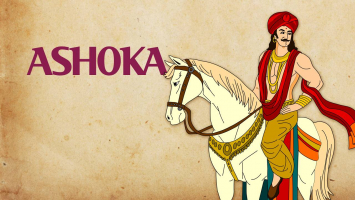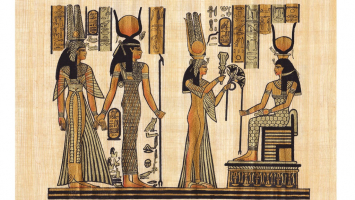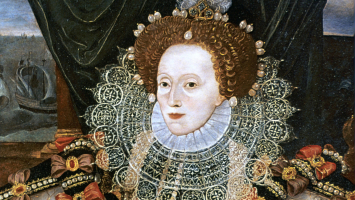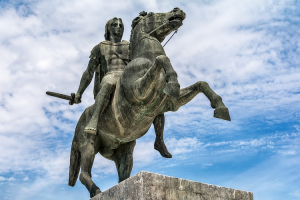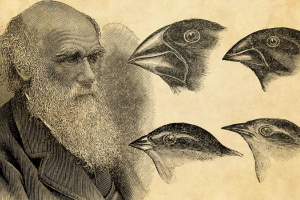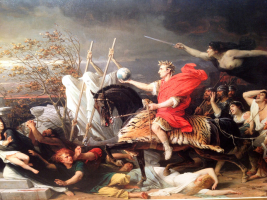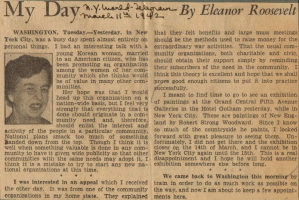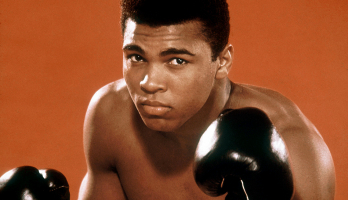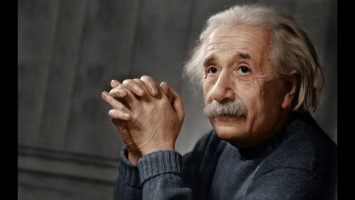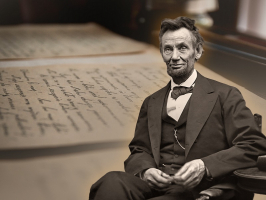Top 10 Major Accomplishments of Alexander The Great
Alexander was the son of King Phillip II and his fourth wife Olympias and was born in the city of Pella in central Macedonia in 356 BC. For his exceptional ... read more...military, strategic, and leadership abilities, he is known as "the Great." Alexander's kingdom spanned 5.2 million square kilometers at the time of his death, making it the largest state in the world at the time. Here are Alexander the 10 major accomplishments of Alexander the Great, concentrating on his glorious military campaign and the attributes that enabled them.
-
By conquering the entire Persian Dominion and extending his empire into India, Alexander the Great did more than any other known military character in ancient history. He was without a doubt the greatest successful military figure in ancient history. He was also harsh, tyrannical, and ambitious, believing himself to be god. Through his conquests of the Mediterranean nations, the Persian empire, and parts of India, Hellenistic culture extended over these areas. In barely 32 years, there has never been a military leader who has accomplished so much.
Alexander's empire was the largest state of its time, covering roughly 5,200,000 square kilometers at the time of his death (2,000,000 sq mi). Several portions of Asia came under Macedonian sovereignty as a result of his conquests, and many of these places remained under Greek rule for the following two to three centuries. His campaigns also significantly increased east-west communication and trade. Around twenty cities bearing Alexander's name were founded. The most famous of these was Alexandria, Egypt, which became the ancient west's intellectual and cultural hub. Alexander and his deeds were praised throughout the ancient world, particularly by Roman rulers who considered him as a role model. Alexander the Great is considered one of history's most important figures. From his time to the present, he has been a part of both high and popular culture. His military techniques are still taught at military institutions, and he is considered one of history's finest generals.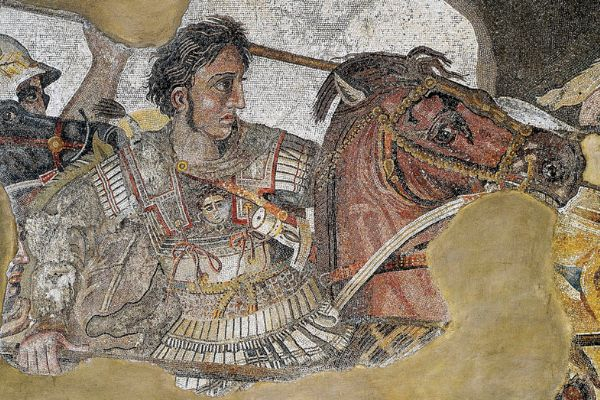
Photo: khanacademy.org 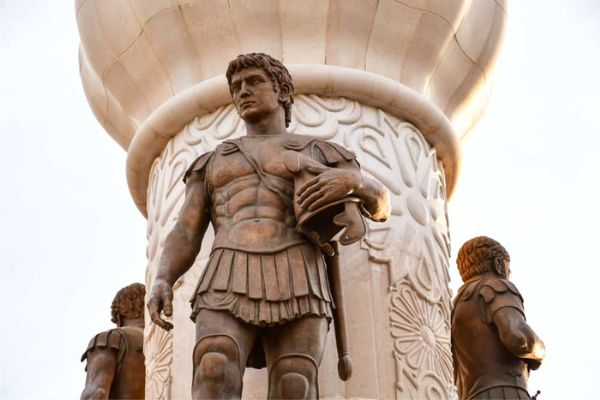
Photo: 24talker.com -
In 328 BC, Alexander had defeated the last of the Persian resistance. Following his marriage to Roshanak (Roxana), which solidified his ties with the Central Asian satrapies, he turned his attention to India. After defeating many clans and tribes in the region, Alexander crossed the Indus to battle Porus, the ruler of Punjab, in the Battle of Hydrapes. After an epic fight, Alexander was so impressed by Porus' bravery that he allied with him and made him the satrap of his country. This conflict was the last of Alexander's major engagements. Alexander was noted for being ruthless, persistent, diplomatic, and even kind at times, in addition to being a skilled military tactician and general. Perhaps it was because of these traits that he was able to survive his long and treacherous campaign, in which he went unbeaten in battle.
Many consider the Battle of Hydaspes to be an ambitious venture, well beyond anything Alexander had previously done, but the young king recognized that he needed to destroy King Porus in order to continue his march across India. Alexander's first march across India went mostly unopposed, and he gained a number of supporters along the route. He despatched an agent to Porus in the hopes of averting a conflict with the Indian monarch, but the arrogant king refused to pay tribute and warned Alexander that he would meet him in battle. He was confident, feeling that the river itself, which was nearly a mile wide, deep, and fast-moving, was his best protection (unlike the river Granicus). The monsoon season and melting Himalayan snow would have expanded it much more by the time Alexander arrived.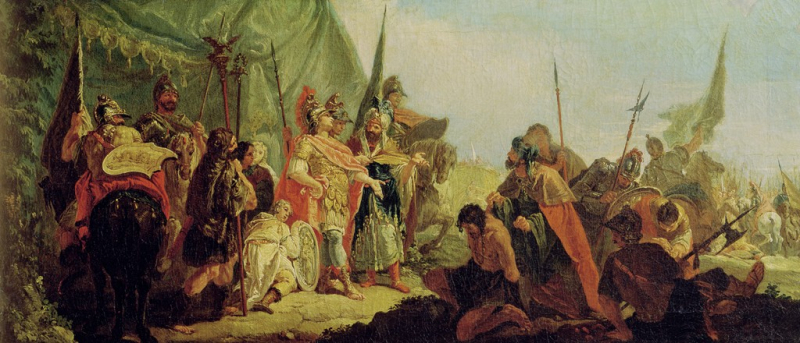
Photo: Wikipedia 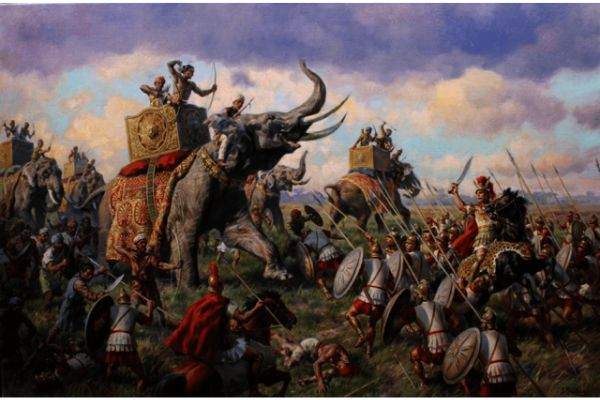
Photo: battlesandcampaigns.wordpress.com -
The Persian ruler would fight Alexander twice after the Battle of the Granicus River, once at the Battle of Issus and again at the Battle of Gaugamela, and the engagements would help determine the fate of his empire and the fate of the Western world. Many historians believe that Alexander had already nominally conquered Persia following the Battle of Gaugamela. Alexander must have realized he had overcome his conquest's most formidable foes, but the war would not be won for him until Darius was arrested or slain. Alexander would be crowned King of Greece and Persia only then. The rumors were that Darius, who was currently based at Ecbatana, deep in Persia's heartland, had already collected his senior officials and was about to raise yet another enormous army. Alexander could not afford to make the same error he had made at Issus, and he set his sights on the ancient capitals of Persia, where he would face his hardest battle yet when Persian Commander Ariobarzanes barred the pass of the Persian Gates.
In the Battle of Persian Gate in present-day Iran in 330 BC, Persian satrap Ariobarzanes led a last stand of Persian forces. While traveling to Persepolis, the Persian Empire's ceremonial capital, Alexander was ambushed in a narrow mountain pass known as the Persian Gate. The Greek force suffered heavy losses, but the Persians were eventually besieged and beaten after holding the gate for a month. Alexander had finally vanquished the strong Achaemenid Empire, and this fight was the final nail in the coffin.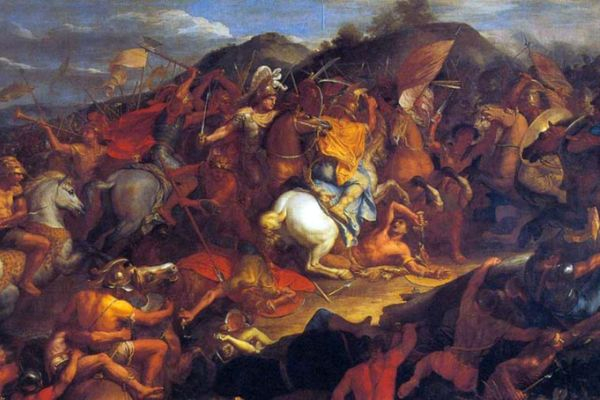
Photo: 1host2u.com Video: BazBattles -
The Battle of Gaugamela, also known as the Battle of Arbela, took place on October 1, 331 BCE, and was the final battle between Alexander the Great of Macedon and King Darius III of Persia. Alexander was unquestionably the King of Asia after this triumph. Gaugamela (which means "Camel's House") was a settlement on the banks of the Bumodus River. The fight is said to have taken place on Tel Gomel (Hebrew for "Camel's Mount") in northern Iraq.
By 331 BC, Alexander had crossed the Euphrates and Tigris rivers and was on his way to the Achaemenid Empire's heartland. Darius III had amassed a massive army by this point, including the best cavalry from his eastern satraps. The forces met in the Battle of Gaugamela, which took place in modern-day Kurdistan. The Greek army was divided into two groups, with Alexander commanding the right and his personal friend Parmenion commanding the left. Darius was in the middle of the battle with his strongest men. The Greek phalanx attacked the enemy's lines in the middle. Alexander hit the Persian army's weakened center, obtaining a clean path to Darius, by forming a wedge. Darius was forced to flee once more as the Persian line crumbled. The Battle of Gaugamela was one of Alexander's greatest triumphs. Bessus, one of Darius's own, assassinated him. In the Persian capitals of Babylon and Susa, Alexander amassed considerable wealth and declared himself Persian King of Kings.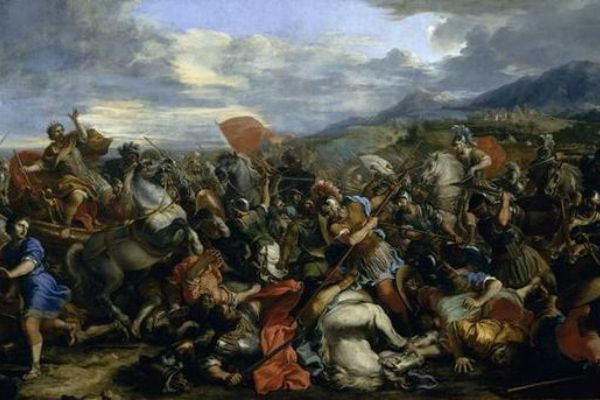
Photo: Wikipedia Video: Kings and Generals -
Alexander marched his army towards Phoenicia, where he received the capitulation of Byblus and Sidon, after defeating Darius III at the battle of Issus in November 333 BCE. While Alexander was on the march, Tyrian envoys spoke with him and declared their intention to carry out his desires.
Alexander had understood that he needed to secure his supply network before going up against his foes. The keys were the coastal territories of Palestine, Egypt, and Phoenicia. Tyre, Phoenicia's largest city-state, rejected Alexander's peace proposals, claiming neutrality in the conflict. Alexander, on the other hand, was adamant in his refusal to yield, and in January 332 BC, he began a nearly eight-month siege of Tyre. Until the fort's destruction, an uncompromising Alexander built bridges to the island city, used siege machines, and battled off the Tyrian navy and army.
Alexander marched south through Jerusalem after the destruction of Tyre to lay siege to Gaza, which was a fortified hill. Batis, the commander of Gaza, had refused to submit to Alexander. Gaza was eventually seized after three failed assaults. After the fall of Gaza, Alexander moved to Egypt, where he was acclaimed as a liberator. In 331 BC, Alexander established the city of Alexandria, which would later become the epicenter of Hellenistic culture and commerce.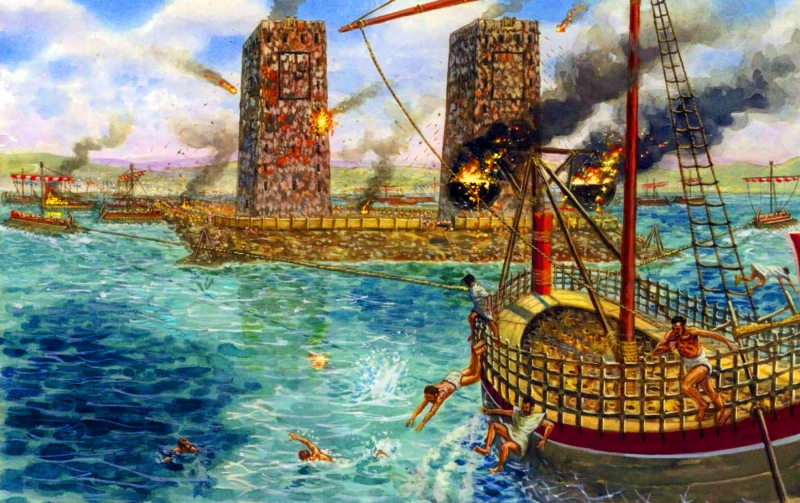
Photo: Pinterest Video: Corey's Stories -
Darius III, King of the Achaemenid Empire, cut off the Greek supply route after the Persians were defeated at the Battle of Granicus. He then recruited a huge army of his own and lined up a confrontation with Alexander's army south of Isus. Darius had evidently not considered his earlier setback while fighting along the river Pinarus. Alexander was on bad terrain, so he told his army to take a defensive stance. This caught Darius off guard, and he decided to shift his strategy and attack the Greek infantry. Up the hill, Alexander and his Royal Companions attacked the Persian army's left flank. On a constrained terrain, cutting up the adversary resulted in a swift retreat. Then Alexander and his elite cavalry launched an all-out assault on Darius, forcing him to escape. The Battle of Issus is seen as a watershed moment in Alexander's protracted war against Persia.
Much more is known about Alexander the Great and his military achievements, the most notable of which was the fall of the Persian Empire. Ambitious individuals have dreamed of establishing large empires and achieving immortal glory in combat for the past 2,000 years, yet none of the conquerors who attempted to achieve such goals were as successful as antiquity's first great conqueror. Alexander conquered much of the known world in less than 15 years.
The Battle of Issus: The History of Alexander the Great's Most Famous Victory against the Achaemenid Persian Empire examines one of antiquity's most significant conflicts, as well as the campaign's far-reaching consequences.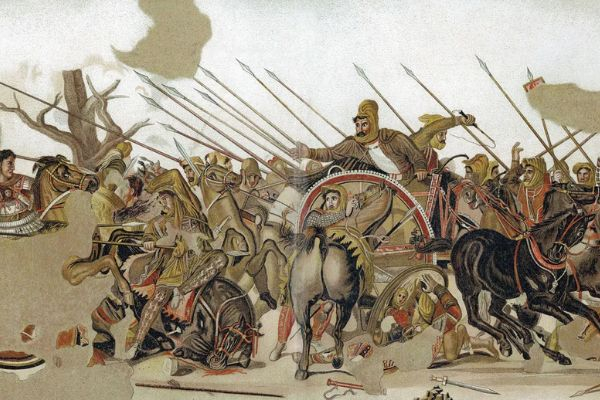
Photo: www.britannica.com Video: BazBattles -
Cyrus the Great established the Achaemenid Empire (The First Persian Empire), which stretched from the Balkans and Eastern Europe to the Indus River in the east. It was skillfully administered by the King through centralized bureaucratic administration involving Satraps (provincial governors). At the town of Zelea, Alexander encountered a gathering of numerous Satraps and their soldiers as he entered into Asia. The battle took place at Troy, Turkey, on the banks of the Granicus River. By battling on the bank, Alexander reduced the Persians' numerical advantage and rendered their deadly chariots ineffectual on soft, muddy ground. Alexander would keep using this advantage against the Persians, fighting many more battles along riverbanks. Alexander moved quickly to the left, cutting a hole in the center with his wedge formation and deploying his troops to attack the Persian army. Alexander or his horse friends assassinated several high-ranking Persian aristocrats. The battle was soon over.
The Battle of the Granicus River: Alexander the Great's First Major Battle Against the Achaemenid Persian Empire examines one of antiquity's most important battles and how it influenced the rest of the campaign. This is another major accomplishments of Alexander the Great.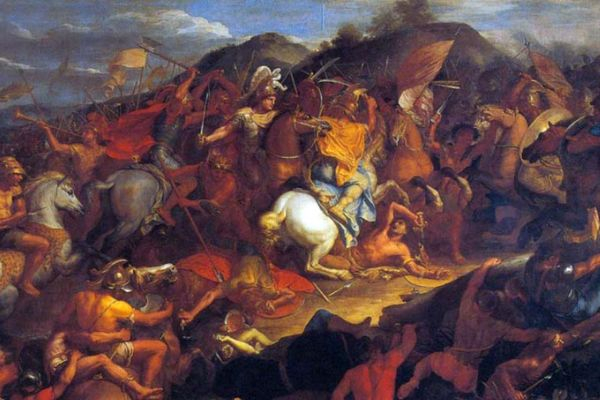
Photo: 1host2u.com Video: Historia Civilis -
Aristotle tutored Alexander until he was sixteen years old. He campaigned in the Balkans in 335 BC, shortly after assuming the throne of Macedon, and reasserted control over Thrace and Illyria before moving on Thebes, which was later destroyed in combat. Alexander then commanded the League of Corinth and utilized his power to carry out his father's vision of a Pan-Hellenic project, assuming command of all Greeks in the conquest of Persia.
He marched in the Balkans in 335 BC, reclaiming Thrace and Illyria before attacking Thebes, the Greek metropolis. The generalship of Greece was thereafter given to Alexander.
Alexander intended to protect his northern borders before embarking on his Asian mission. He marched north, crushing Thracian uprisings led by Cleitus, King of Illyria, and Glaukias, King of Taulantia, among others. Following these victories, the city of Thebes, which had revolted once more, was razed. These conquests finally convinced the rest of Greece to submit to Alexander's dominion. Alexander was able to gain complete control of Greece in just two years, allowing him to focus his efforts on Asia and it is also one of the major accomplishments of Alexander the Great.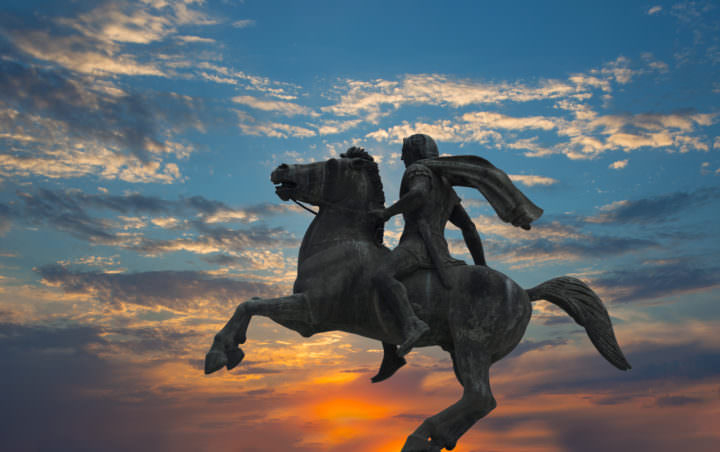
Photo: greekboston.com 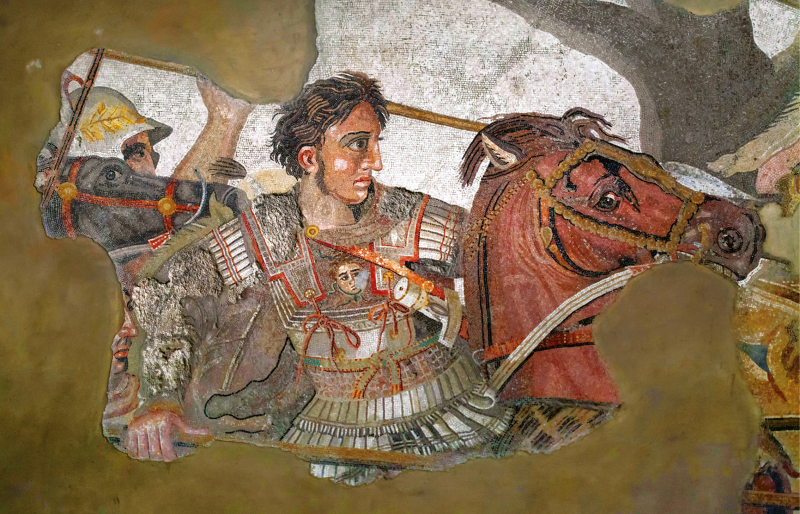
Photo: the-past.com -
Alexander was proclaimed King of Macedonia at the age of 20 after Phillip II was assassinated in 336 BC. Many states and tribes, like as Athens, Thessaly, and Thebes, were spurred by Phillip's death to revolt. Alexander was swift to respond, going south with 3000 cavalry and forcing Thessaly to surrender. Athens immediately joined in, sending an ambassador, and Alexander was given the title of 'Hegemon' of the Greek army fighting the Persians in the city of Corinth. This is one of the major accomplishments of Alexander the Great.
Alexander, already a charismatic and powerful leader at the age of twenty, quickly harnessed the Macedonian troops that his father's reforms had transformed into the region's dominant military power. He led a large army across the Hellespont in Asia in 334 B.C. It was the most formidable military expedition ever to leave Greece, with 43,000 infantry and 5,500 cavalry. Alexander, the first to set foot on Asian soil, leapt ashore, hurled a spear into the ground, and declared the continent "spear conquered".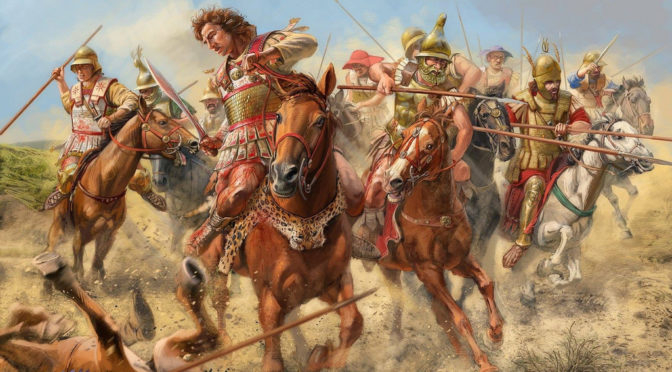
Photo: sabkidunya.com 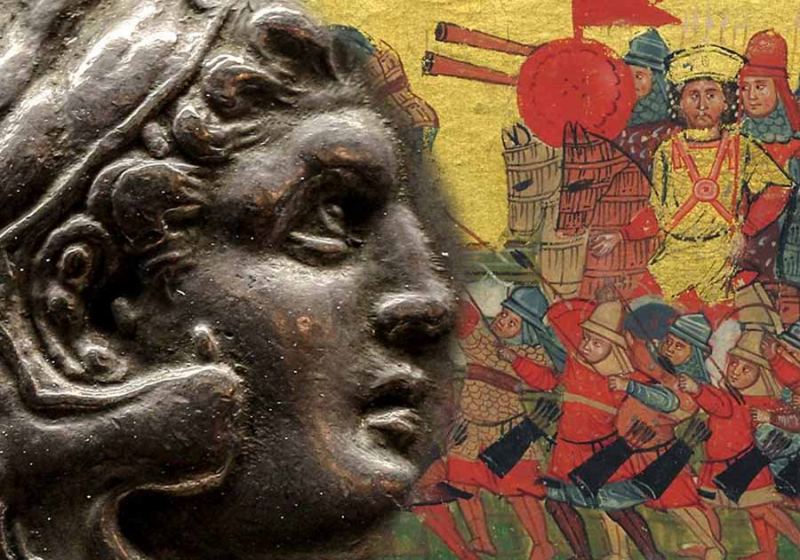
Photo: www.ancient-origins.net -
The Battle of Chaeronea took place in 338 BC near Chaeronea in Boeotia, between an alliance of Greek city-states led by Macedonia under Philip II and an alliance led by Athens and Thebes. The fight marked the finale of Philip's final wars in 339-338 BC, and the Macedonians and their allies won decisively.
Some independent city-states in Greece, particularly Thebes and Athens, saw Alexander's father, Philip II of Macedonia, as a threat. This resulted in the Battle of Chaeronea in 338 BC in Boeotia, central Greece, when Alexander, at the age of 18, played a crucial role, directing the left-wing command to help his father secure victory. The Sacred Band of Thebes, an elite corps formerly thought to be invincible, was slaughtered by Alexander's cavalry wing. This victory gave Macedonia a dominant position in Greece, allowing Alexander to continue his exploits.
The fight that followed is shrouded in mystery, but we do know that Alexander's men defeated the opposing Sacred Band. The effect on the already shattered Theban and Athenian morale was devastating; the Greek city-state army was quickly routed, with Demosthenes among those who fled.
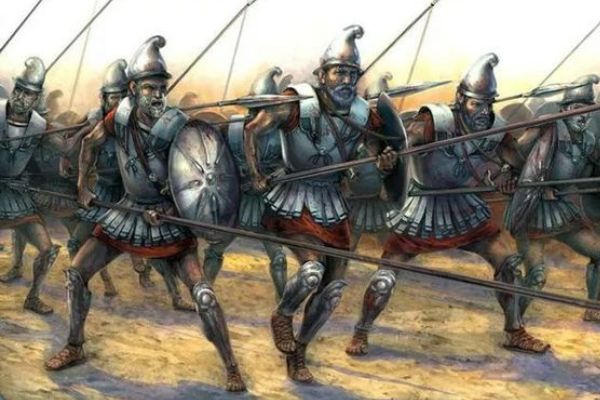
Photo: masculineepic.com Video: HistoryMarche












